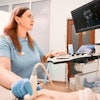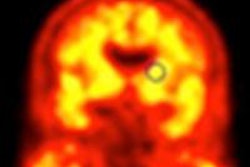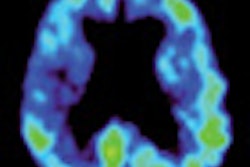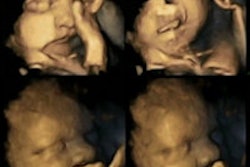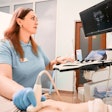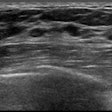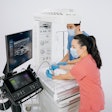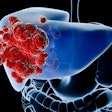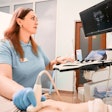Maternal blood testing of DNA more effectively screens for Down syndrome in early pregnancy than standard screening methods that include ultrasound, according to an article published April 1 in the New England Journal of Medicine.
In a large study that followed nearly 16,000 pregnant women from 35 centers in six countries, a research team led by Dr. Mary Norton of the University of California, San Francisco found that cell-free DNA (cfDNA) testing for trisomy 21 detected all 38 fetuses with Down syndrome. In comparison, the standard screening combination of measuring biochemical analytes and ultrasound-based nuchal translucency identified only 30 of 38 (78.9%) cases.
Cell-free DNA testing also had only nine false positives (0.06% false-positive rate), compared with 854 false positives (5.4% false-positive rate) from standard screening. Cell-free DNA testing yielded an 80.9% positive predictive value, compared with 3.4% for standard screening. Both differences were also statistically significant (p < 0.001).
The researchers noted that the cfDNA testing technique was also better for detecting two other less common chromosomal abnormalities: trisomy 18 (Edwards syndrome) and trisomy 13 (Patau syndrome).
"Although these data support the use of cfDNA testing in women regardless of age or risk status, further cost utility studies are warranted," the authors wrote. "As emphasized by professional societies, the use of cfDNA testing and other genetic tests requires an explanation of the limitations and benefits of prenatal test choices to the patient."
Some caution is also indicated, as standard screening can identify risk for a broad array of abnormalities that can't be identified on cfDNA testing, according to the researchers. Furthermore, the team noted that there were a surprisingly high number of aneuploidies found in the 488 pregnant women whose plasma samples were disqualified due to factors such as an inadequate or immeasurable quantity of fetal DNA, assay failure, or high sequencing variance. Chromosomal defects were found in 2.7% of these fetuses, a markedly higher rate than the 0.4% prevalence in the overall group.
